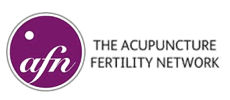High Blood Pressure & High Cholesterol
Home > A-Z of Conditions Treated by an Acupuncturist > High Blood Pressure & High Cholesterol
High blood pressure (hypertension) is a chronic medical condition in which the blood pressure in the arteries is higher than accepted levels for good health.
 Blood pressure is expressed by two measurements, the systolic and diastolic pressures, which are the maximum and minimum pressures, respectively, in the arterial system. A blood pressure reading below 130/80mmHg is considered to be normal in adults. You are said to have high blood pressure or hypertension if your blood pressure readings are consistently 140/90mmHg or higher.
Blood pressure is expressed by two measurements, the systolic and diastolic pressures, which are the maximum and minimum pressures, respectively, in the arterial system. A blood pressure reading below 130/80mmHg is considered to be normal in adults. You are said to have high blood pressure or hypertension if your blood pressure readings are consistently 140/90mmHg or higher.
Around 30% of adults in England, and around 50% of the over 60s, have high blood pressure but many don’t know, as it does not usually cause symptoms at the outset. Left untreated, high blood pressure increases your risk of hypertensive heart disease, coronary artery disease, stroke, aortic aneurysm, peripheral artery disease, and chronic kidney disease.
There are two types of hypertension. Around 90% of cases are categorised as primary hypertension, defined as high blood pressure with no obvious underlying cause. The remaining cases are categorised as secondary hypertension, defined as hypertension due to an identifiable cause, such as chronic kidney disease, narrowing of the aorta or kidney arteries, or an endocrine disorder.
RISK FACTORS FOR HYPERTENSION
Your chances of having high blood pressure increase with age. Risk factors for high blood pressure include:
- being overweight
- having a relative with high blood pressure
- smoking
- eating too much salt
- poor diet, eating insufficient fruit and vegetables
- lack of exercise
- drinking too much coffee (or other caffeine-based drinks)
- drinking too much alcohol
Management of high blood pressure – dietary and lifestyle changes can improve your blood pressure and decrease the risk of health complications. Medication may be necessary.
Many of the risk factors for high blood pressure are also risk factors for high cholesterol. People with high blood pressure (hypertension) and diabetes often have high cholesterol.
ABOUT HIGH CHOLESTEROL (HYPERLIPIDAEMIA)
Cholesterol is a natural substance which helps your body build new cells, protect nerves, and produce hormones.
There are two forms of cholesterol in the blood:
- Low-density lipoprotein (LDL or “bad” cholesterol) LDL is the main source of artery-clogging plaque
- High-density lipoprotein (HDL or “good” cholesterol) HDL works to clear cholesterol from the blood.
Normally, the liver makes all the cholesterol the body needs. But cholesterol also enters your body from food, such as milk, eggs, and meat. The majority of “bad” cholesterol comes from eating fatty processed foods such as meat pies, sausages, fatty meat, cakes, pastries, biscuits and crisps.
Too much cholesterol in your body is a risk factor for heart disease and stroke. When there is too much cholesterol in your blood, it builds up in the walls of your arteries forming ‘plaques’, causing the blood vessels to become narrower and reducing blood flow. Bits of the plaque may break off restricting or preventing vital blood flow to the heart or brain.
Conventional management of high cholesterol usually starts with making changes to your diet and increasing your level of exercise. If your cholesterol level has not dropped after a few months, you will usually be advised to take cholesterol-lowering medication. If you are concerned that you may have high blood pressure or high cholesterol, see your GP for a check up.
Acupuncture for High Blood Pressure & High Cholesterol
Results of controlled clinical trials indicate that acupuncture is an effective treatment for both hypertension (high blood pressure) and hypotension (low blood pressure) and may also be of therapeutic benefit in treating hyperlipidaemia (WHO, 2003). To date most of the studies have been on a small scale and more research is needed.
Physiological studies suggest that acupuncture may specifically help to lower blood pressure by:
- Regulating the activity of substances (vasodilators and vasoconstrictors) responsible for controlling the diameter of blood vessels
- Acting on the parts of the brain responsible for reducing pain and stress
- Promoting relaxation
- Deactivating the ‘analytical’ brain responsible for anxiety and worry
- Releasing adenosine – a vasodilator
- Reducing inflammation
See also:
Treating High Blood Pressure & High Cholesterol
 “Whilst the mechanisms are not fully understood, clinical evidence indicates that acupuncture can help reduce high blood pressure and reduce cholesterol levels. Acupuncture can also help treat some of the risk factors associated with these conditions, such as obesity, diabetes and smoking habits.
“Whilst the mechanisms are not fully understood, clinical evidence indicates that acupuncture can help reduce high blood pressure and reduce cholesterol levels. Acupuncture can also help treat some of the risk factors associated with these conditions, such as obesity, diabetes and smoking habits.
I am very happy to help clients with acupuncture treatments to help lower blood pressure and cholesterol, but if you have been prescribed medication for your condition it is important that you tell your GP about it and do not discontinue or reduce your medication without your GP’s advice.”
FURTHER INFORMATION
World Health Organization 2003. Acupuncture: Review and Analysis on Controlled Clinical Trials – http://apps.who.int/medicinedocs/pdf/s4926e/s4926e.pdf
Research Fact Sheets
For more information see the British Acupuncture Council Research Fact Sheet below.
Testimonials
“Excellent professional service. Judy helped me with kidney and high blood pressure issues to the extent that my last blood test came back normal. Big thank you to Judy. I can’t recommend her highly enough.”



